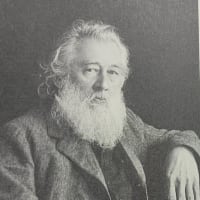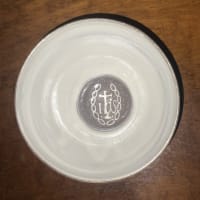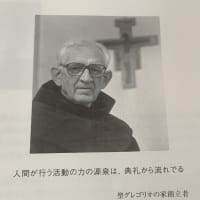Slide Ⅰ
- Hayathology is a process theology of Becoming named after the concept of “Haya” contained in God’s name, "ehyeh asher ehyeh" revealed to Moses (Exod. 3-14) in the Bible.
- The theme of Hayathology is God-Becoming, Human-Becoming, and World-Becoming in the inseparable trinity.
- Hayathology may well be characterized philosophically as follows:
(1) Theology of Becoming which integrates Being and Nothingness in the inseparable unity.
(2) Panentheism (neither pantheism, nor theism, but integrates both as its abstract components)
(3) Surrelativism (neither relativism, nor absolutism, but integrating both as its abstract components:self-transcending relativism/self-trans-de-scending absolutism)
(4) Surnaturalism (neither naturalism, nor supernaturalism, but integrating both as its abstract components:self-transcending naturalism/self-trans-de-scending supernaturalism)
Slide Ⅱ “From the Bible”

Dixit Deus ad Moysen: “Ego sum qui sum”. Ait: Sic dices filiis Israel: Qui sum misit me ad vos”.(Vulgata)
God said to Moses, "I am who I am. This is what you are to say to the Israelites: 'I AM has sent me to you.' "
Footnotes: Or I will be what I will be (NIV)
(Luther : Ich werde sein, der Ich sein werde)
As E. Gilson clearly pointed out, the mediating link between the Bible and Greek philosophy was thought by scholastic theologians to be laid out by Moses, who received God’s revelation of His own name. According to the Bible (Exod.3-14), God’s name was literally, “ehyeh asher ehyeh”. This name was afterwards translated into the Greek Septuaginta as “ I am the Being”, and into the Latin Vulgate, “ego sum qui sum”, i.e. “I am who am”.
As the very name of God was identified with the Being itself, the quest for God became a philosophical inquiry into the Real Being, which Aristotle had considered as the chief concern of his metaphysics.
The text of Exodus, however, presupposes a very different conception of Being from Greek one. The Hebrew meaning of “ehyeh” is an imperfect form of the Verb “HAYA” which can be translated as “I will be who will be” as well as “I am who am”. According to the Old Testament hermeneutics of Boman, a German Old Testament scholar, the Hebrew verb “Haya” contains Becoming as the focal
core meaning, whereas the verb “on” in the corresponding Greek translation excludes any trace of change or becoming, especially in the philosophical context. Thereforem “Ego eimi ho on” (I am the Being” was interpreted by Greek and Latin Fathers to signify God’s existence as well as His Essence from the Greek philosophical perspective, i.e. the self-sufficient Being standing aloof from
the vicissitudes of the world. They affirmed God to be immutable, and invariable in his Being, and always in the same mode of existence, admitting neither progress nor diminution. The dynamic historical aspect of the Old Testament God had to be ignored because God was considered as the absolute substance, or the unmoved Mover.
The Biblical God, on the other hand cannot stand aloof from the historical process of the world. He essentially related with the fate with the fate of humankind as if the Bible were a book of God’s anthropology rather than Human’s theology. The culmination of God’s concern for human was shown in the Christ-Events, i.e. the Incarnation of the Word as Jesus, His Suffering, His Death, and His Resurrection. The so-called Christological problem, which arose from the New Testament
attribution of suffering to incarnate deity, was to the Early Fathers an insoluble aporia beyond human Reason, because such ideas were repugnant to the Greek conception of absolute Being. If we want to understand Christ-Events faithfully to the Biblical tradition, we need some other conceptual frameworks than Greek one. What I call Hayathology is such metaphysics of becoming based on the Biblical concept of “Haya”. It is essentially the theology of Historical Process, because
the theme of Hayathology is God-Becoming, Human-Becoming, and World-Becoming in the inseparable trinity.
The word of “surrelativism” was used by Charles Hartshorne in his Divine Relativity. His standpoint is, if I understand him correctly, is that thoroughgoing relativism is not a simple relativism, and may well be characterized by the name of surrelativism which includes absolutism as its abstract component. Agreeing with Hartshorne that surrelativism represents a more concrete standpoint than an abstract absolutism. I would like to apply such a dynamically relational mode of
thinking to the problematic of naturalism. I characterize my theology as “surnaturalism.” It is self-transcending naturalism which includes supernaturalism as its abstract components. It does not treat nature as the closed wholeness, but as always self-transcending, self-surpassing totality which is open to the realm of infinite possibilities in the future.
As I believe in the reality of the supernatural, I would like to underscore not only selftranscending of the natural, but also self-trans-de-cending of the supernatural. Hayathology is the middle Way between two extremes, naturalism and supernaturalism.
As panentheism is a widely accepted view among many process theologians, I may not have to explain it in the details. Roughly speaking, Panentheism says God does not exist in a specialized place of the world, but is everywhere. The reason why God is omnipresent is not that God is in the world, but that the World itself is in God, i.e. everything is in God. In other words, the world is not the place of God, but God is the Place of the world—that is the central idea of panentheism.























 81/}
81/}













